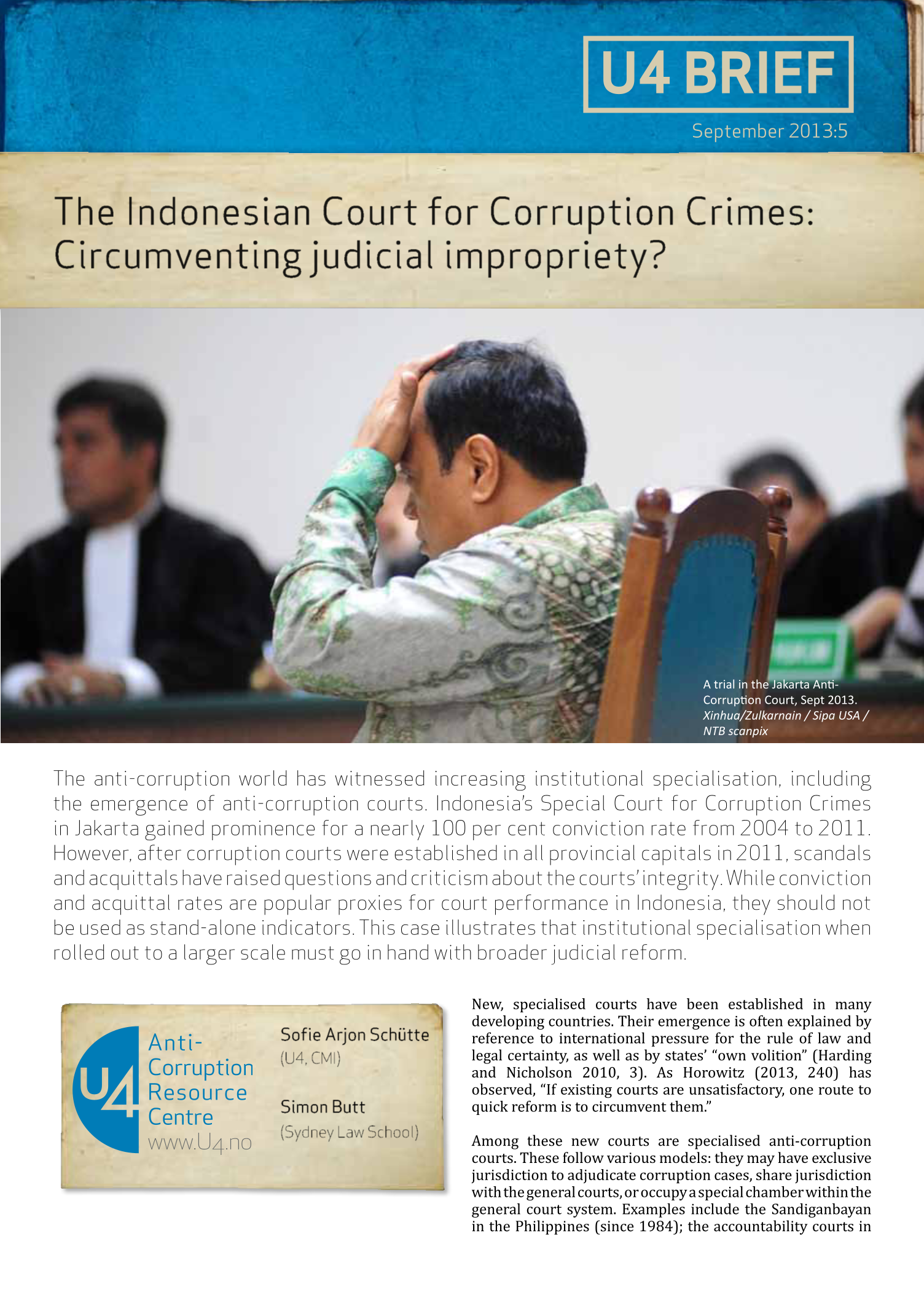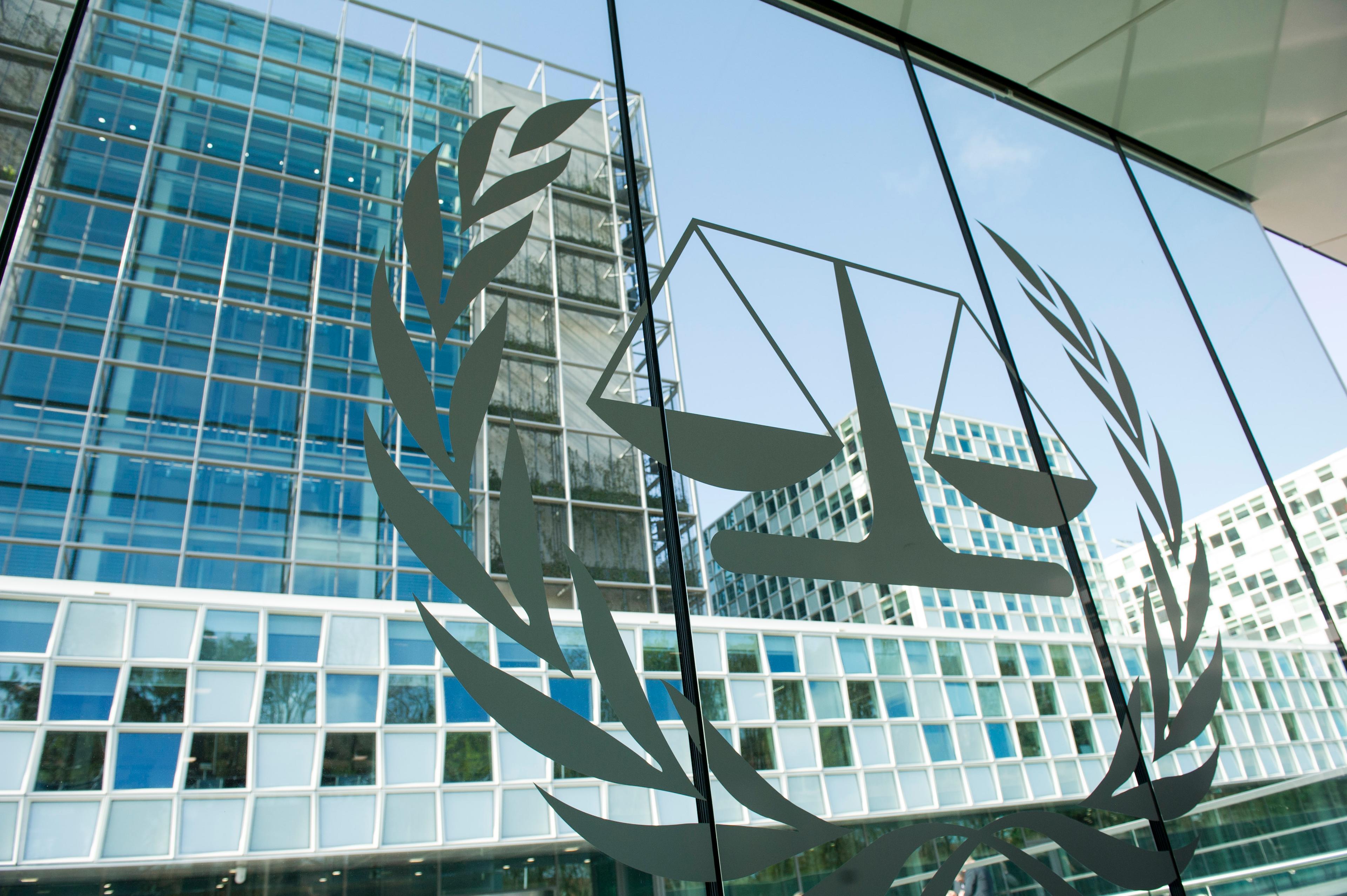U4 Brief
The Indonesian Court for Corruption Crimes: Circumventing judicial impropriety?
The anti-corruption world has witnessed increasing institutional specialisation, including the emergence of anti-corruption courts. Indonesia’s Special Court for Corruption Crimes in Jakarta gained prominence for a nearly 100 per cent conviction rate from 2004 to 2011. However, after corruption courts were established in all provincial capitals in 2011, scandals and acquittals have raised questions and criticism about the courts’ integrity. While conviction and acquittal rates are popular proxies for court performance in Indonesia, they should not be used as stand-alone indicators. This case illustrates that institutional specialisation when rolled out to a larger scale must go in hand with broader judicial reform.

Cite this publication
Schütte, S.; Butt, S. 2013. The Indonesian Court for Corruption Crimes: Circumventing judicial impropriety? Bergen: Chr. Michelsen Institute (U4 Brief 2013:5) 4 p.
Disclaimer
All views in this text are the author(s)’, and may differ from the U4 partner agencies’ policies.
This work is licenced under a Creative Commons Attribution-NonCommercial-NoDerivatives 4.0 International licence (CC BY-NC-ND 4.0)


